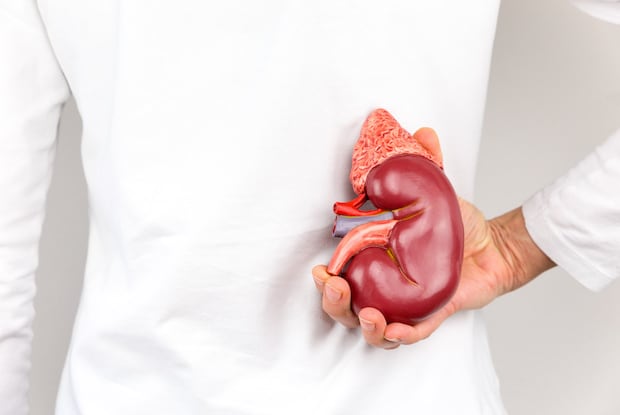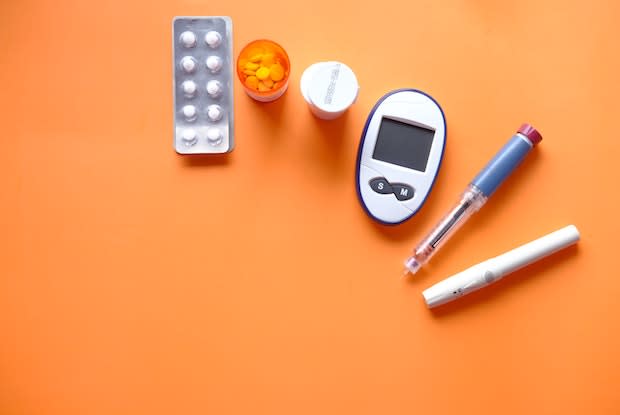Table of Contents
Overview
Having a chronic illness can come with a lot of complicated feelings. After a serious diagnosis like diabetes, kidney disease, or heart disease, a person may lose interest in everyday activities, like sex.
These conditions can lead to erectile dysfunction in men. Your body may not function as it once did after a chronic illness diagnosis, but everyday life does not have to be permanently impacted if you take medications like Viagra and Cialis.
Many things can cause erectile dysfunction, but having a chronic illness can increase your chances of having ED. The penis has a lot of blood vessels that need to be functioning correctly for a man to get or maintain an erection. Chronic illness can come with hormone imbalances and problems with blood flow, which can lead to problems with the sex organs.
Several chronic diseases can affect a person’s sexual functioning. Anxiety and depression often accompany this change in life, but it does not have to stay that way. There are several methods to manage your chronic disease and maintain a healthy and satisfying sex life. Read on to learn more about ED and the disorders in which it commonly occurs. [1]

Kidney disease
The kidneys are two bean-shaped organs that act as the body’s waste filtration system. The kidney filters unwanted chemicals and water, disposing of them as urine. Kidneys filter your blood 12 times per hour, so when these organs become damaged, there can be a significant effect on the body. Kidney disease occurs when the kidneys cannot filter the blood as effectively. Some common symptoms of kidney disease can include:
- Reduced amount of urine
- Unexplained shortness of breath
- Swelling of legs, ankles, and feet from water retention
If kidney function drops below 10%, dialysis or a kidney transplant may be necessary. Hemodialysis is a standard treatment and involves pumping the blood out of your body to an artificial kidney machine and then back into the body via tubes. This can usually maintain a healthy filtering system for several years. In chronic or end-stage renal (kidney) failure, you will need dialysis for the rest of your life, which can come with some side effects. [2]
Several studies suggest that extended use of dialysis can lead to erectile dysfunction. Chronic renal failure can result in reduced testosterone levels. Testosterone is vital for the male libido but also the function of the penis. This deficiency can lead to loss of the smooth muscle in the penis, which is essential for getting and maintaining erections. [3]
Coronary heart disease
Maintaining a healthy sex life with heart problems can be difficult because sex requires a degree of cardiac fitness. [4] The healthy functioning of the heart, as well as the penis, revolves around blood flow. Maintaining an erection requires blood to flow freely into the penis, but this can be hindered if the blood vessels have narrowed.
This buildup of plaque in the arteries is called atherosclerosis. When it is time for an erection, arteries in the body widen or dilate, which then flows into the penis. This blood cannot flow if the arteries are full of plaque. Some symptoms of heart disease in the blood vessels include:
- Pain in the neck, jaw, or throat
- Chest pain, chest tightness, chest pressure
- Numbness or weakness in legs or arms [5]
If you do not have any heart problems, ED may be a warning sign of burgeoning health issues. If the arteries in your sex organs are malfunctioning, then it is likely that arteries in the rest of the body may be having problems as well. If the arteries in the heart become clogged, a heart attack can occur. [6]
Diabetes
Diabetes is a disease that affects the body’s ability to produce insulin or properly use the insulin it produces. Around 30 million people have diabetes in the United States. Insulin regulates the amount of sugar in the blood, and too much blood sugar can cause damage to organs and blood vessels. [7]
Erectile dysfunction is common in men with type 2 diabetes. As discussed earlier, ED is linked to many conditions, but it is more prevalent in men with diabetes. Difficulty maintaining an erection may also precede the diagnosis of diabetes.
Poor long-term blood sugar control can lead to the damage of nerves and blood vessels. Damage to blood vessels can cause erectile dysfunction.
Type 2 diabetes can sometimes remedy itself if you lose excess weight and maintain a healthy diet. Abstaining from smoking also helps maintain diabetes symptoms. Maintaining a healthy weight, eating a healthy diet, and quitting smoking help improve vascular health and reduce the risk of ED. [8]

Arthritis
Arthritis is an illness that affects the joints in the body. Rheumatoid arthritis (RA) affects 1% of Americans and affects both men and women, but men tend to have more severe symptoms. Rheumatoid arthritis occurs when your body’s immune system targets the linings of the joints. It causes inflammation and pain in the hands, wrists, and knees. It can also affect the heart, lungs, eyes, blood, and nerves. Symptoms of rheumatoid arthritis can include:
- Joint stiffness that is worse in the morning
- Fatigue
- Tender, warm, and swollen joints [9]
Commonly, RA-related pain, stiffness, and exhaustion may lead to a decrease in a person’s libido. RA can often feel like the flu or a cold if the disease is not well-maintained with medication. Medications for rheumatoid arthritis, like Plaquenil (hydroxychloroquine), can help ease RA symptoms and therefore improve your mood.
Even when your RA is under control, pain and stiffness in the joints may still occur. These symptoms can make certain positions uncomfortable, which can make sex painful. Many men with RA also have problems getting an erection. These symptoms are thought to be caused by the same chemicals that cause the inflammatory response in RA, which then affects the blood vessels in the penis. [10]
If you are experiencing sexual side effects of RA, then you can experiment to find more comfortable sexual positions or take a warm shower to relieve stiff joints before sex. It may also help to time your physical intimacy for the times when your joint stiffness is less severe. [1]
Cancer
A diagnosis of cancer can be scary and nerve-wracking for a person. This diagnosis can often lead to surgeries or chemotherapy, which can come with a lot of side effects. All of this mental anxiety can affect the sex life of a person and their partner.
Various forms of cancer, especially prostate, can lead to problems with erectile dysfunction. Surgery and radiation of the pelvic area can help impact a man’s ability to get or maintain an erection. If you have pelvic surgery to treat cancer, it can affect the nerves and blood vessels, which then impact erections. It can sometimes take over two years for a man to regain erectile function after an invasive surgery to the pelvis. Some common symptoms of prostate cancer include:
- Frequent urination at night
- Blood in urine
- Painful ejaculation
- Burning or pain during urination
The prostate produces fluid that makes up the ejaculate, and this function can be affected by pelvic cancers and surgeries. If the nerves that control this function are affected, then men may have “dry” ejaculations, which are not harmful but can affect a man’s self-esteem. [11]

General treatments
Every chronic illness has its unique trials and tribulations, so treatment for erectile dysfunction can be different for every patient. Physical intimacy is an integral part of life and essential to a healthy relationship. There will often be changes to your body with new medications, so it is important to talk with your doctor before taking medications. Erectile dysfunction with chronic illness can have both physical and physiological causes, and there are treatments for both.
a. Medications
Diabetes, heart disease, and kidney disease can lead to physical effects like the narrowing of blood vessels, which decreases the blood flow to the penis during sexual stimulation. Medications like Viagra and Cialis are common medications to help with blood flow. These drugs work by relaxing the muscles and arteries inside the penis, which allows blood to reach the sex organs.
b. Therapy
Dealing with chronic illnesses can take a toll on your mental health as well as your sex life. A person with a chronic disease is juggling several treatments, medications, and symptoms. This can leave a person feeling depressed with a low sex drive.
If a man thinks that he is experiencing erectile dysfunction due to anxiety or stress, then the help of a therapist may be beneficial. A sex therapist can help you cope with the weight of your illness and strengthen communication with your partner, which can significantly improve the state of a person’s erectile dysfunction. [1]
The content in this article is intended for informational purposes only. This website does not provide medical advice. In all circumstances, you should always seek the advice of your physician and/or other qualified health professionals(s) for drug, medical condition, or treatment advice. The content provided on this website is not a substitute for professional medical advice, diagnosis or treatment.
